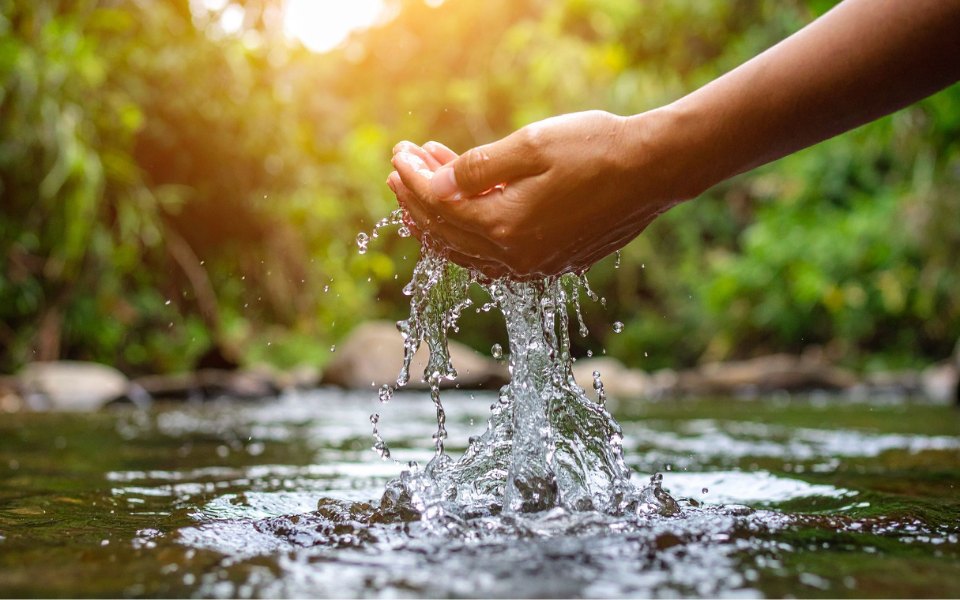Have you ever noticed that you can move through an entire day without truly being there?
You drive somewhere and can’t remember the route. You’re in conversation but already thinking about what’s next. Your body is present, but your mind has wandered into the past or future.
Most of us live this way far more than we realize. Research shows our minds wander almost half the time, and when they do, we feel less happy, less connected, and more exhausted. An unfocused mind quietly drains our life force energy. Meditation trains your mind to come home and to stay grounded, focused, and alive to the present moment.
When I Realized How Scattered My Mind Had Become
I still remember one evening near the end of a long day climbing Mount Kilimanjaro. We arrived at camp, and just beyond the tents, a small stream wound through the rocks. I took off my boots, placed my sore feet in the icy water, and felt the ache of the day melt into that moment.
The cold. The sound of rushing water. The mountain air on my face.
To this day, I remember it vividly because it stood in such stark contrast to how I had been living. My mind had been so busy planning, fretting and analyzing that I rarely noticed the simple beauty of being alive. On that mountain, I caught a glimpse of what it felt like to be fully present. I didn’t have words for it then, but that moment became a turning point. I sensed that the real mountain I needed to climb was inside, and this inspired me to learn how meditation trains the mind to focus and be more present in my day-to-day life.
The Myth of Multitasking and the Cost to Women’s Well-Being
So many women I’ve coached over the years believe they should be able to multitask and that juggling ten things at once somehow proves their worth. Yet neuroscience tells another story.
Dr. Amishi Jha, a cognitive neuroscientist at the University of Miami, has spent decades studying attention. The research she shares in her book Peak Mind shows that the brain cannot truly multitask. What feels like multitasking is actually rapid task-switching, and each switch comes with a cost. The more we try to do everything at once, the more depleted, distracted, and stressed we become.
Our culture rewards constant doing, but an overtaxed nervous system cannot find peace. When women push themselves to manage it all, they often lose the ability to simply be — to feel their own presence, hear their intuition, and sense what they most need. I wrote more about why women need to ditch their conditioning because it’s something I’ve personally struggled with.
How Meditation Trains Your Mind to Be Present
Presence isn’t a vague spiritual ideal. It’s a trainable quality of mind.
Dr. Jha describes three interwoven systems of attention that together create the experience of presence:
- The Spotlight helps us sustain focus on one thing at a time — like resting attention on the breath or a mantra in meditation.
- The Floodlight broadens awareness so we can notice what’s happening around and within us — sensations, emotions, and subtle cues.
- The Juggler coordinates both, monitoring priorities and shifting focus when needed. It integrates information and connects insights into meaning.
Meditation trains your mind by strengthening all three systems. Each time we notice our mind has wandered and gently bring it back, we train the brain to be steadier and more flexible. Over time, attention becomes less fragile and more resilient, even under stress.
Neuroscientist Dr. Amishi Jha’s research shows that mindfulness training strengthens all three systems of attention—the spotlight, floodlight, and juggler—helping the mind stay steady even under stress.
You can learn more about establishing a simple, core meditation practice in The Best Meditation Practice For Inner Peace and to Reconnect with Yourself.
Energy Flows Where Attention Goes
Ancient wisdom and modern neuroscience agree: where we place our attention shapes our reality. Attention is like sunlight — diffuse when scattered, radiant when focused.
When we focus on what matters, our energy flows there. We become more alive, creative, and connected. When our attention is hijacked by worry or distraction, our energy fragments. Meditation trains your mind to direct your energy toward what nourishes you — rather than what depletes you.
Presence and Purpose: Connecting the Dots
The juggler system is what allows us to see patterns and connect the dots — to link our experiences into a larger sense of meaning. It bridges our intuitive and analytical ways of knowing so we can sense the whole picture of our lives.
When attention is steady, purpose emerges naturally. We begin to see how even our challenges fit within a deeper unfolding. Meditation trains your mind to integrate insight and intuition so that purpose isn’t something you search for; it’s something you begin to see.
Presence: The First Step in Coming Home to Yourself
In my 4 Keys to Inner Peace framework, presence is part of the first key — Self-Regulation. It’s the beginning of learning to work with the mind, connect with the body, and cultivate awareness.
Without focus, the rest of the journey can’t unfold. With it, we lay the foundation for self-love, self-discovery, and authentic self-expression. Focus steadies the nervous system so we can feel safe enough to explore the deeper layers of who we are.
Even simple daily practice helps. When we sit, breathe, and return our wandering attention again and again, we’re not failing — we’re training. Over time, that training shows up everywhere: in how we listen, how we sleep, how we love, and how we live.
Coming Home to What Matters
That evening on the mountain, I didn’t yet understand the neuroscience of attention. I only knew that for one small moment, my mind, body, and soul were in the same place.
Meditation trains your mind to focus, to return home, and to live fully awake to your one precious life. It’s how we reclaim our energy and our presence. It’s how we come home to ourselves and live with a renewed spark for life, for love, and for purpose. To support you on your journey to become more present in your life, I’ve curated a list of Simple Daily Practices for Living With Presence.
Perhaps the quiet miracle of meditation is that it doesn’t take us out of life. It brings us fully into it.



Leave A Comment